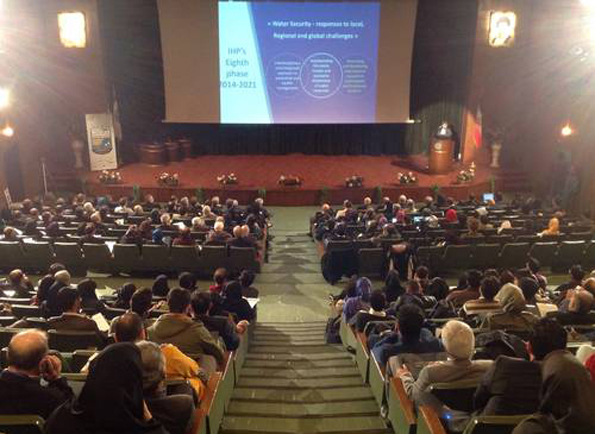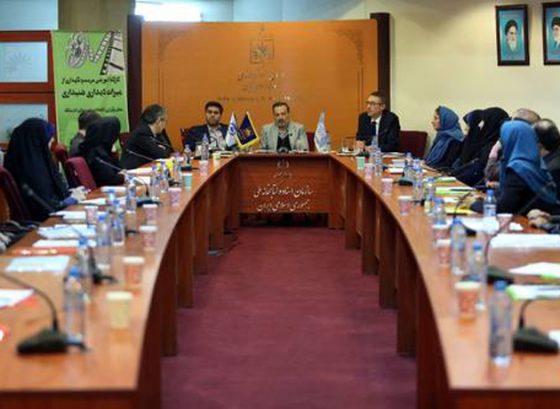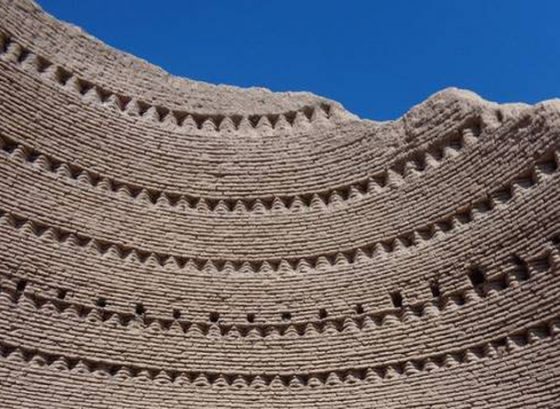UNESCO supports International Conference on Water and Environment in the New Millennium: Education and Capacity Building at University of Tehran

The UNESCO Tehran Cluster Office supported the University of Tehran in holding the “International Conference on Water and Environment in the New Millennium: Education and Capacity Building”. The three-day conference was a joint effort of the University of Tehran, the German Academic Exchange Service (DAAD) and UNESCO. Over 200 participants from Australia, Canada, China, Germany, Iran, Japan, the Netherlands, Pakistan and the United States attended the opening ceremony on the 3rd of December, AVA Diplomatic reports.
Dr. Hamid Pezeshk, Secretary of the Conference, informed the audience in his welcoming remarks that there would be 60 oral presentations during the conference, six round table discussions and 12 thematic workshops.
Dr. Nasiri-Gheidari, Secretary-General of Iranian National Commission for UNESCO, talked about UNESCO’s “environmental family” in Iran, which include three water-related training and research centers under the auspices of UNESCO, two UNESCO Chairs, and 12 Biosphere Reserve sites. He emphasized the need to create greater synergies between the different programs and institutions working in the field of water.
The Director of German Academic Exchange Service (DAAD), Dr. Frens Stoeckal, said that water was at the top of the agenda of the Ministry of Education of Germany and he expressed the hope that the conference would also explore new techniques in water education.
Mr. Rahim Meydani, Deputy Minister of Energy for Water and Wastewater Affairs said: “We should face the reality that we don’t receive much precipitation and 75% of the precipitation falls in only 25% of the country”. He then informed that the Government has envisaged a long-term program to reduce the share of agricultural water to 69% from the present 86%. The Deputy Minister of Energy recalled three main measures of the government to achieve sustainable water resource management: i) restoration and balancing of the groundwater resources, ii) coordination council of major river catchments of the country, and iii) calculating the available renewable water by taking into account the environmental water need.
The two final keynote speakers of the opening of the Conference were Dr. Blanca Jimenez-Cisneros, Director/Secretary of UNESCO International Hydrological Programme (IHP), and Prof. Mahmoud Nili-Ahmadabadi, Chancellor of the University of Tehran.
Dr. Jimenez-Cisneros reviewed the evolution of the UNESCO International Hydrological Programme (IHP) since the 1970s and the change from a purely research program to a global scientific intergovernmental programme. She also introduced the HOPE initiative recently developed by UNESCO IHP, which provides free access to an open software platform, and she invited Iran to contribute to this platform.
Dr Nili-Ahmadabadi welcomed all participants of the Conference and mentioned that Tehran University has developed a new vision to become an internationally recognized university. He said that 15 research institutions have been established under the University of Tehran with various universities. And expressed the hope that the new water education institute, recently established with the support of UNESCO at Tehran University, would pave the way for advancing water education across the region.
In the afternoon of the first day of the Conference, UNESCO organized a roundtable discussion on “Water and Media” with the participation of Prof. Jennifer Bowls from the United States and Prof. Elisabeth Miller from Canada.
The conference will continue until 5 December with technical workshops on the Sustainable Development Goals, droughts and water management in arid zones, the role of higher education institutions, groundwater management, transboundary water management, water markets and virtual waters.




